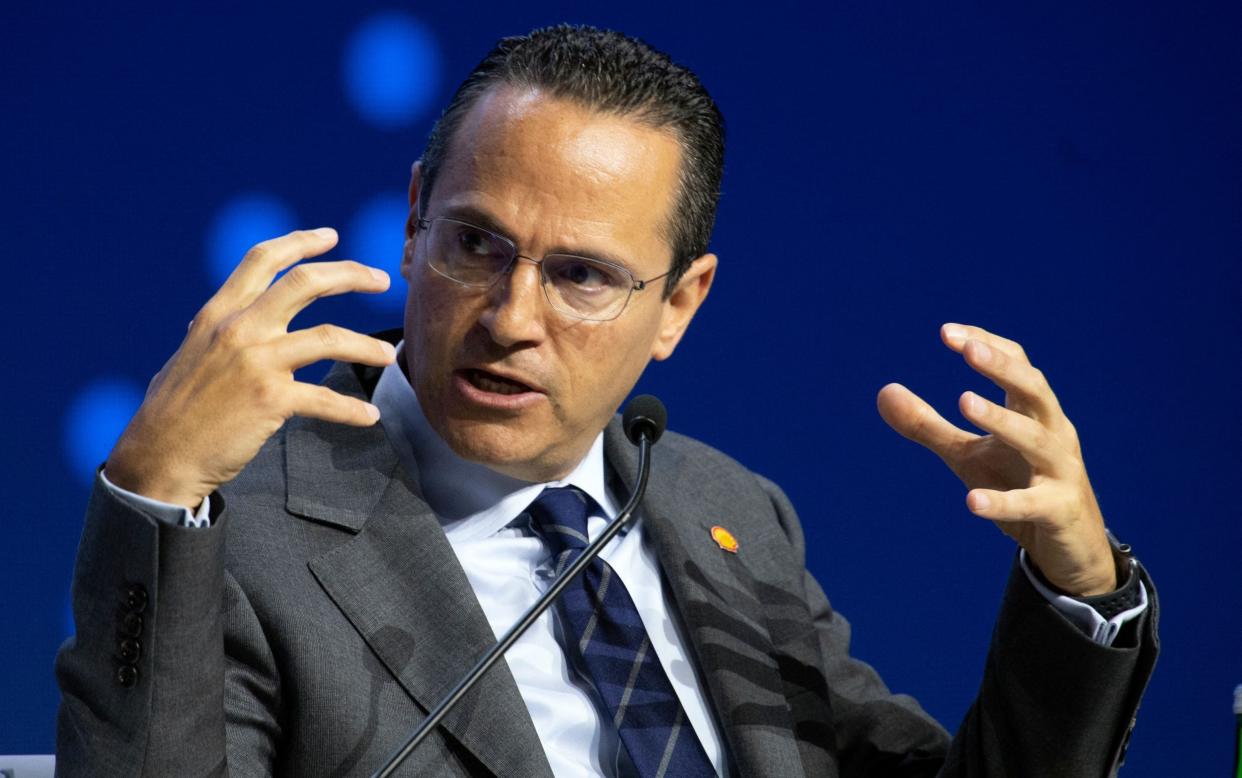Shell halts construction of giant biofuel factory

Shell has halted construction work at one of Europe’s largest biofuel plants, dealing a blow to airlines’ hopes of offering passengers low-carbon flights.
The decision to pause activity at the site in Rotterdam, which was designed to convert waste into jet fuel, was announced by the oil and gas giant on Tuesday.
The facility was designed to produce 820,000 tonnes of biofuels a year, half of which was to be used for sustainable aviation fuel (SAF) made from waste cooking oil and animal fat.
Sustainable jet fuel has been at the forefront of airlines’ plans to sell flights as “low carbon”, as they strive to reduce the industry’s impact on the environment.
Shell had been touted as a key SAF supplier after its Dutch subsidiary announced the biofuel project in 2021. Operations had been expected to start in 2025.
However, Shell Nederland Raffinaderij confirmed on Tuesday that it was carrying out an “impairment review” of the project, casting doubts on its long-term viability.
The announcement is one of a series of setbacks for low-carbon projects by big energy companies.
It follows BP’s announcement last week that it was putting all new offshore wind projects on pause, with new chief Murray Auchincloss deciding to focus increasingly on fossil fuels.
He also halted two biofuel projects in Germany and the United States.
‘Committed to achieving net-zero target’
Wael Sawan, Shell’s chief executive, has adopted a similar approach to increase returns.
Following the Rotterdam decision, Huibert Vigeveno, Shell’s downstream, renewables and energy solutions director, said: “Temporarily pausing on-site construction now will allow us to assess the most commercial way forward for the project.
“We are committed to our target of achieving net-zero emissions by 2050, with low-carbon fuels as a key part of Shell’s strategy to help us and our customers profitably decarbonise.”
It is rare for companies to suspend the development of projects that are already under way.
However, under Mr Sawan – who took office in January 2023 – Shell has scrapped and sold renewable and hydrogen projects, retreated from European and Chinese power markets and sold refineries to focus on the most profitable operations, primarily in oil and gas.
This has led to Shell’s share price rising by 11pc so far this year.
After announcing investment in the Rotterdam biofuel plant in 2021, Marjan van Loon, president director of Shell Netherlands, said the refinery would help meet growing demand from transport, including hard-to-decarbonise sectors such as aviation.
At the time, she said: “Shell’s investment will help increase SAF production, which is vital if aviation is to cut carbon emissions. Shell has been on the road to a lower-carbon future for some time.”
Joshua Stone, a UBS analyst, told Reuters that the pause was consistent with Shell’s strategy to focus on returns.
He said: “The delays further highlight that the advanced biofuels market is not an easy one. The oil majors have dipped their toes and found it challenging.”
Shell said it would provide further details in its quarterly trading update on Friday.


